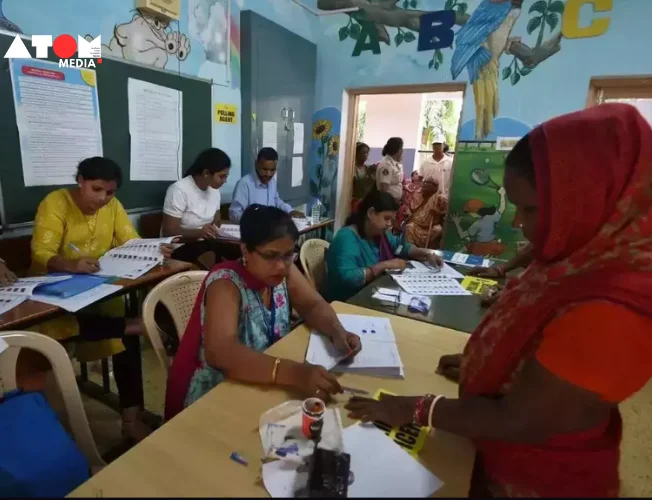New Delhi: The Election Commission (EC) has revealed the final turnout, which is 63.37%, as well as the total number of votes cast in the sixth round of the Lok Sabha election. This data, which was made public just three days after the polling on May 25, is different from earlier releases of results, which took the poll board 36 days to divulge data for the first five stages.
Insights into Voter Turnout
Diverse states had diverse voter turnouts in the sixth phase; Jammu and Kashmir had the lowest turnout at 55.40%, while West Bengal recorded the highest at 82.71%. Notably, J&K saw its best voter engagement in 30 years despite the reduced turnout. In this phase, 7,05,44,933 votes were cast in 58 seats; this is in contrast to the 11,13,16,606 total number of registered electors.
Timely Disclosure and Legal Proceedings
The Election Commission’s move to make the absolute numbers available so quickly coincides with court cases involving calls for increased election openness. The Supreme Court rejected a petition submitted by the non-governmental Association for Democratic Reforms that requested the release of Form 17 C, which contained booth-level data. Concerns about a purported “design” in the petitioners’ strategy were brought up in the EC’s affidavit to the court, highlighting the necessity of preserving the electoral process’ integrity.
Reiteration of Electoral Integrity
Reiterating its commitment to maintaining the integrity of the democratic process, the EC emphasized in its statement that it is impossible to change the total number of votes cast. The commission reaffirmed its commitment to upholding openness and justice in the conduct of elections by expressing caution against misleading narratives and efforts to sabotage the voting process.
Overview of Previous Phases
Looking back at the previous stages of voting, different percentages of people participated. Out of 16,63,86,344 registered voters, 11,00,52,103 votes were cast in the first phase, and 10,58,30,572 votes were cast in the second phase out of 15,86,45,484 registered voters. In a similar vein, high voter turnout was recorded in the third, fourth, and fifth rounds, suggesting ongoing civic participation during the election process.
Implications for Democratic Governance
The Election Commission’s prompt dissemination of voter participation statistics has important ramifications for democratic government. The commission upholds public confidence in the election process by guaranteeing accountability and openness in the electoral process. Furthermore, the timely and reliable data that is readily available to stakeholders allows them to evaluate the effectiveness of electoral procedures and pinpoint areas that require improvement.
Future Directions and Electoral Reforms
In order to address issues with electoral accountability and transparency in the future, stakeholders will urgently need to keep communicating and working together. To promote democratic government, electoral reforms that improve the election process’s accessibility, inclusion, and integrity are essential. The Election Commission is essential to advancing these changes and building a strong electoral system, working in concert with other stakeholders and civil society groups.
Read more: Marketing News, Advertising News, PR and Finance News, Digital News


